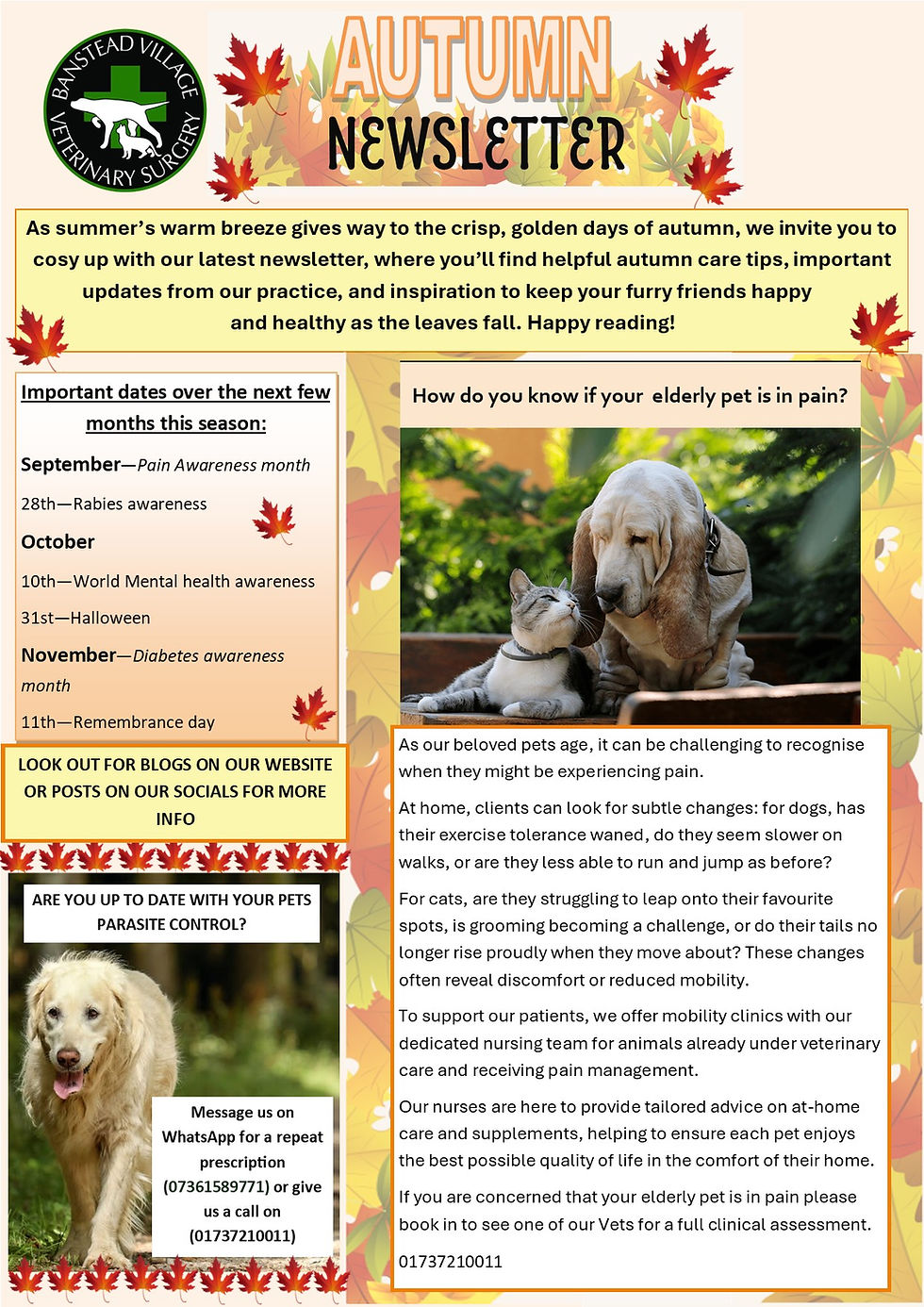Understanding Hypertension in Animals
- Caitlynn Reid
- Apr 29
- 2 min read

Hypertension, or high blood pressure, is a condition often associated with humans, but did you know that it can also affect our beloved pets? Identifying and managing hypertension in animals is crucial for their health and well-being.
In this blog post, we will explore the clinical symptoms of hypertension in animals, the risks of leaving it untreated, and how it can be managed through veterinary care.
Clinical Symptoms of Hypertension in Animals
Hypertension in animals can be a silent condition, sometimes showing no obvious symptoms until it becomes severe. However, there are several clinical signs that pet owners can watch out for:

Changes in behavior: Restlessness, irritability, or lethargy.
Vision problems: Sudden blindness or difficulty seeing, often due to retinal detachment.
Neurological issues: Seizures or disorientation.
Heart problems: Coughing, difficulty breathing, or rapid heart rate.
Kidney dysfunction: Increased thirst and urination, weight loss, or decreased appetite.
Risks of Untreated Hypertension
Leaving hypertension untreated in animals can lead to serious health complications. High blood pressure can cause damage to vital organs, including the heart, kidneys, eyes and brain. Over time, this can result in conditions such as heart disease, kidney failure, and irreversible blindness. Early detection and treatment are essential to prevent these potentially life-threatening consequences.

Managing Hypertension Through Veterinary Care
The good news is that hypertension in animals is manageable with proper veterinary care. Here are some steps to ensure your pet receives the best care:
Regular blood pressure checks: Our nurses offer blood pressure checks to monitor your pet's health. If there are any concerns, we can refer you and your pet to a veterinarian for further investigation.
Medication: If diagnosed with hypertension, your veterinarian may prescribe medication to help control your pet's blood pressure.

Diet and lifestyle: Adjusting your pet's diet and exercise routine can also play a significant role in managing hypertension. Your veterinarian can provide tailored recommendations.
Continuous monitoring: Regular follow-up visits with your veterinarian will help ensure that the treatment plan is effective and make any necessary adjustments.
Benefits of Early Detection
Early detection of hypertension in animals can make a significant difference in their quality of life. By catching the condition early, you can work with your veterinarian to manage it effectively, preventing the progression of serious health issues. Regular blood pressure checks and monitoring are key to maintaining your pet's health and well-being.

As pet owners, it is our responsibility to ensure our furry friends are healthy and happy. Hypertension may not always be visible, but with regular check-ups and attentive care, we can protect our pets from the risks associated with high blood pressure. Remember, our team are here to help. We offer blood pressure checks, and if there are any concerns, we can refer you to a veterinarian for further investigation. Together, we can ensure our pets live long, healthy lives.

For the month of May we are offering all our VIP club patients that are over the age of 7 years old a 'Free-of-charge' blood pressure check. This is to highlight the importance of early detection in Hypertension in all our furry patients no just our feline patients.
Contact the practice to get your pet booked in with one our nurses during the month of May.





Comments